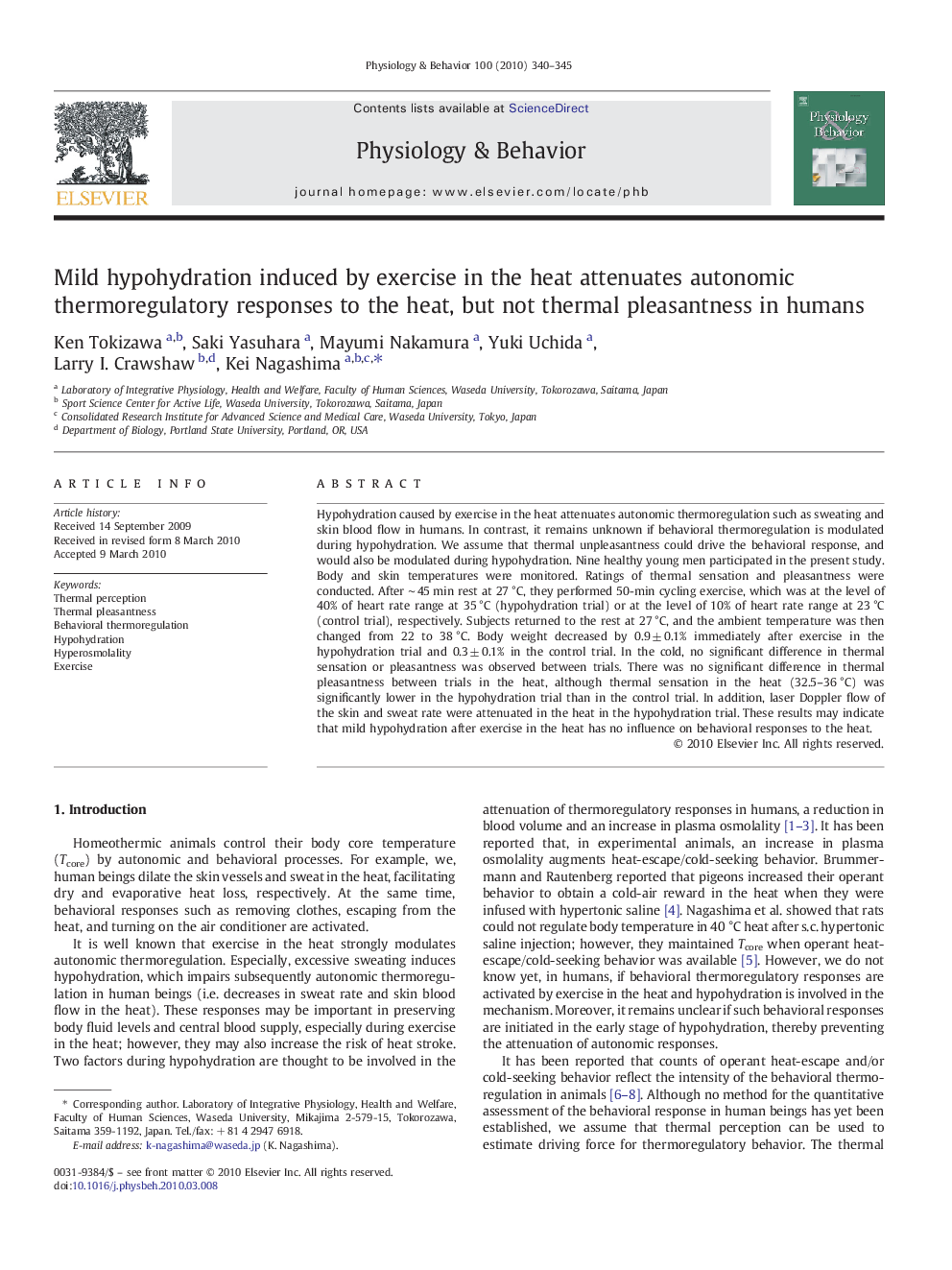| Article ID | Journal | Published Year | Pages | File Type |
|---|---|---|---|---|
| 2844933 | Physiology & Behavior | 2010 | 6 Pages |
Hypohydration caused by exercise in the heat attenuates autonomic thermoregulation such as sweating and skin blood flow in humans. In contrast, it remains unknown if behavioral thermoregulation is modulated during hypohydration. We assume that thermal unpleasantness could drive the behavioral response, and would also be modulated during hypohydration. Nine healthy young men participated in the present study. Body and skin temperatures were monitored. Ratings of thermal sensation and pleasantness were conducted. After ∼ 45 min rest at 27 °C, they performed 50-min cycling exercise, which was at the level of 40% of heart rate range at 35 °C (hypohydration trial) or at the level of 10% of heart rate range at 23 °C (control trial), respectively. Subjects returned to the rest at 27 °C, and the ambient temperature was then changed from 22 to 38 °C. Body weight decreased by 0.9 ± 0.1% immediately after exercise in the hypohydration trial and 0.3 ± 0.1% in the control trial. In the cold, no significant difference in thermal sensation or pleasantness was observed between trials. There was no significant difference in thermal pleasantness between trials in the heat, although thermal sensation in the heat (32.5–36 °C) was significantly lower in the hypohydration trial than in the control trial. In addition, laser Doppler flow of the skin and sweat rate were attenuated in the heat in the hypohydration trial. These results may indicate that mild hypohydration after exercise in the heat has no influence on behavioral responses to the heat.
